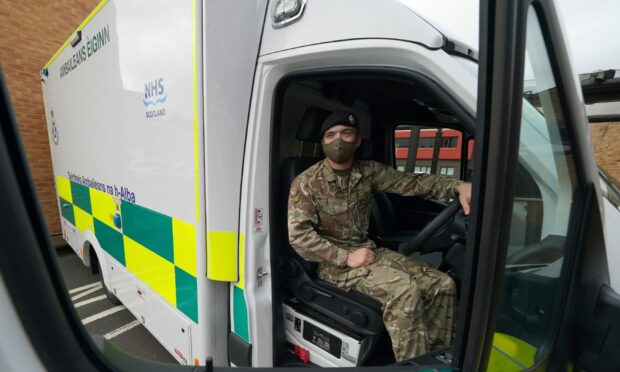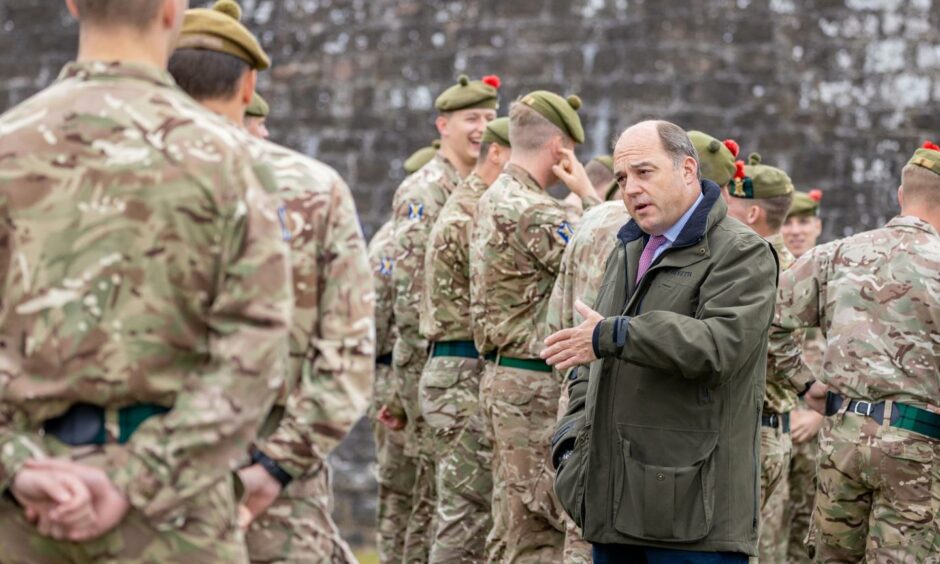Nicola Sturgeon and Boris Johnson are being cautioned against relying on the military to plug gaps beyond the immediate Covid crisis.
UK Defence Secretary Ben Wallace, a former Army captain, said soldiers are there to help civilian authorities such as the NHS deal with “rare” events.
But he said political leaders in all parts of the UK must not just break the emergency glass and use them as routine cover.
His comments come as Scotland’s chief constable, Iain Livingstone, said his officers are picking up “excessive demand” to cover other public services.
In an exclusive interview with us, Mr Livingstone revealed his staff are increasingly finding themselves as the service “of first and last resort” for people with mental health problems, addiction issues and in need of hospital care.
In London, Mr Wallace was asked to react to the government’s use of the military.
Armed forces ‘have a day job’
“The danger is, governments get let off the hook when they can’t deliver their own policy and they just break glass in normal times for the Armed Forces,” Mr Wallace said.
“Our Armed Forces have a day job, they have lots of other things to do.”
Mr Wallace, a former Tory MSP in the North East region, noted the Ministry of Defence had readily offered combat medics in Scotland and Northern Ireland, while Wales were given ambulance drivers.
We’re not there for governments, where they make a policy failing, to just reach for the Armed forces.
– Ben Wallace MP
All parts of the UK are entitled to whatever military support they need, he said.
“But fast forward a few years, you’re going to have to ask the fire brigades union,” he added.
“We’re not there for governments, where they make a policy failing, to just reach for the Armed forces, wherever they are in the United Kingdom: England, Scotland, Northern Ireland, Wales.”
Russia, independence and counterterrorism
In an extensive interview, Mr Wallace commented on the military’s presence in Scotland, the future of bases and the ongoing constitutional debate about independence.
He promoted the UK’s role in combating terrorism overseas, keeping domestic peace and the global intelligence network.
In each area he suggested Scotland would be less able than the UK.
He also warned about the impact of background interference, including claims Russia had meddled in the debate to destabilise the UK.
Asked if there was any evidence of Russian interference in the current Scottish independence debate online, Mr Wallace said: “I think what we’ve seen is Russia and other nations take an interest to magnify division in nationalist debates around Europe, including Scotland.”
Citing security reasons, he added: “I can’t talk about the here and now … but I could say there is an interest.”
In September, Ms Sturgeon told Holyrood she had asked for military help in the pandemic.
“Such assistance is already being provided to ambulance services in England and, of course, we have had military assistance for other aspects of the pandemic in the last 18 months,” she said.

